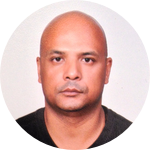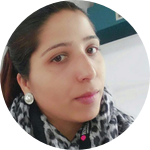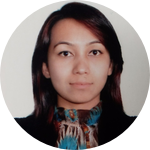About This Project
Urban communities around the globe experience change from multiple sources. Although social change has a potential to influence the resilience of communities, scholars in these fields have not adequately addressed the issue and its impact on social sustainability. This research examines how urban communities respond and adapt to natural disasters following a change in social structures and networks, using a case study of Kathmandu Valley, which was hit by a major earthquake in April 2015.
Ask the Scientists
Join The DiscussionWhat is the context of this research?
Urban communities around the globe experience change from multiple sources and are in a continuous state of transition. In addition to the physical change, modern cities have experienced a host of social change due to population growth and migration. The emerging socio-cultural model that characterised the change are reflected in the changing social norms and values, changing social networks and the changing nature of urban communities in their approaches to association between people and development activities. This raises an important question - does social change affect the capacity of a community to remain resilient during natural disasters such as an earthquake?
What is the significance of this project?
Although social change has a potential to influence the resilience of communities, scholars in the field have not adequately addressed the issue and its potential impact on social sustainability of urban neighbourhoods. This research will respond to the need to address social change from the point of view of building resilience to natural disasters. The study is significant because of its empirical focus on developing countries of the Global South, where there is a dearth of investigation that highlights the challenges urban change offers to social sustainability. Moreover, little or no knowledge on community resilience exists in the context of developing countries as most studies to date are focused on developed countries with limited research implications.
What are the goals of the project?
This research project examines how social change influences the capacity of urban communities to remain resilient during natural disasters such as an earthquake. We will employ a case study approach to answer the research question and look into urban communities in the Kathmandu Valley in Nepal, which was hit by a major earthquake in April 2015 killing more than 9000 people. The funds will be used to conduct fieldwork in the valley between July - September 2017. Under the case study strategy, we will select three new neighbourhoods for data collection and use household surveys (to collect data on socio-demographic profile), interviews with neighbourhood residents and participant observations of community activities.
Budget
The budget items will directly contribute towards the execution of the research project in the Kathmandu Valley. The main item of the budget is for the research fieldwork for a period of 2 months ($ 1850) and it includes purchasing air tickets for travel to Kathmandu from Brisbane and return for Chief Investigator (CI) Dr Rajjan Man Chitrakar and salary wages for three research assistants based in Kathmandu. A part of the fund ($ 900) will be used for purchasing supporting items such as stationery materials, a laptop computer and a voice recorder to conduct the interviews. Some money will also be required for travel expenses for the CI and research assistants to get access to the research sites within Kathmandu. A small amount of $ 100 has been allocated for incidental expenses during the fieldwork.
Endorsed by
 Project Timeline
Project Timeline
Apr 26, 2017
Project Launched
Jul 02, 2017
Travel to Kathmandu
Jul 09, 2017
Field study
Aug 31, 2017
Return to Brisbane, data analysis
Nov 01, 2017
Final report
Meet the Team
Rajjan M Chitrakar
I am trained as an architect and urban designer, with significant teaching, research and industry experience in architecture, urban design and planning in Australia and overseas. After completing a PhD in Urban Design and Planning from Queensland University of Technology (QUT), Australia in 2015, I am currently working as Sessional Academic at QUT, where I teach urban design and research methods for undergraduate students and supervise doctoral candidates as an external supervisor. My research interest is situated at the intersection of urban design and planning, with a particular focus on urbanisation, urban growth and change in Asian cities, provision, use and management of public open space, sustainable development of urban neighbourhoods, community resilience, place-making and sense of community and risk-sensitive land use planning. I have published a number of peer reviewed papers in highly ranked international journals and presented my research works in national and international conferences in Australia and internationally.
I am the recipient of a number of prestigious awards, scholarships and research grants including:
1. QUT Publication Grant (2015)
2. QUT Faculty of Science & Engineering Scholarship (2012)
3. QUT Higher Degree by Research Tuition Award (2012)
4. Asian Development Bank – Japan Scholarship (2005)
5. Dr Indira Upadhyaya Gold Medal (2003)
Click here to see my profile on Researchgate.
Click here to see Google scholar citations.
Jharana Bhattarai
I am a PhD candidate at the Centre for Urban Research, RMIT University in Melbourne after completion of my masters degree in urban and regional planning from University of South Australia. In my doctoral research, I am looking into how climate change impacts can be responded at the local level in the urban regions of developing countries and exploring how people make the decisions about policies for an adaptive action of climate change’s impacts. This research will also try to discover the role of urban governance principles in developing adaptation actions in the cities. My research interest lies in the topics such as International Development, sustainable cities, Urban Planning and Governance, climate change adaptation and global cities.
Sunayana shrestha
I am trained as an architect and have been practicing in this field for over five years with both national and international work experiences. I have also completed a Master of Science degree in Urban Planning from Tribhuvan University, Nepal in 2015. My masters degree research titled "City Branding - Regaining the image of Patan as a city of Fine Arts: A case of Metal craft" investigated city image and branding from the perspective of local art and craft industry in a traditional Newari town of the Kathmandu Valley. The findings reflect the potential of historic towns to compete in the international market rather than just being known as a World Heritage Site. My research interest lies in the broad field of urban growth management and planning, with a specific focus on sustainable urbanism, urban culture and conservation and smart city. Currently, I have developed a growing interest in the social, cultural and economical factors as drivers of urban growth and change in a traditional town and the resulting physical transformation.
Project Backers
- 1Backers
- 1%Funded
- $5Total Donations
- $5.00Average Donation




